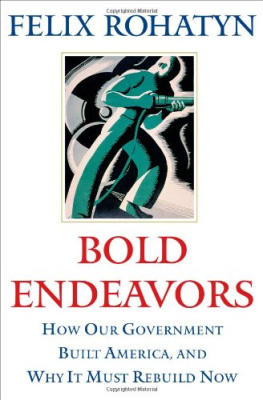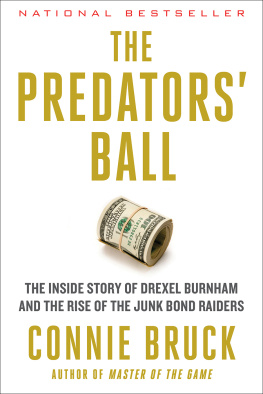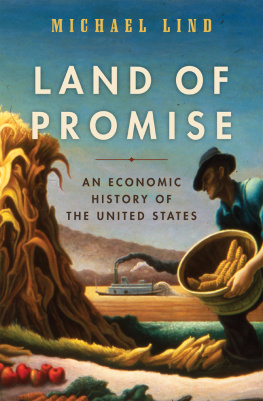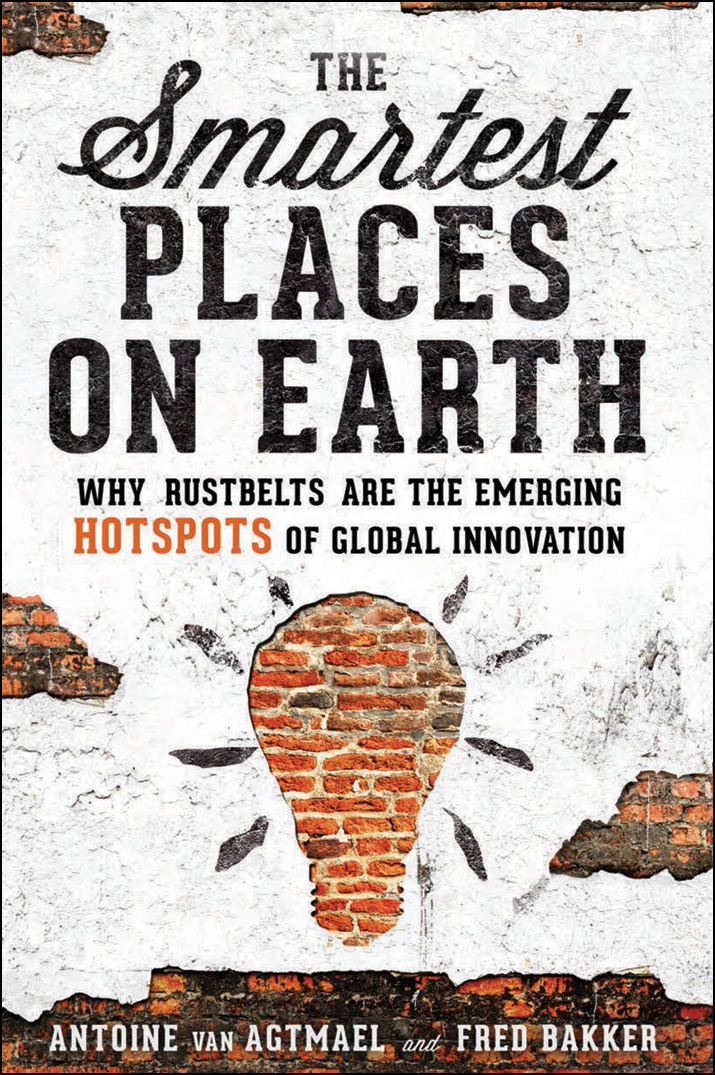Praise for The Smartest Places on Earth
An absolutely fascinating tour of cities in the United States and Europe that were once traditional centers of manufacturing which are now reinventing themselves as hubs of innovation. If you want to understand how economies at the local level can transform themselves, this is the book to read.
Liaquat Ahamed, author of Lords of Finance
Van Agtmael and Bakker paint an exciting picture of the future based on progress made possible by cooperative processes they call brainsharing. Citing unheralded developments in specific places and specific industries, this extraordinarily well researched book challenges the conventional view of a developed world in relative decline. The authors make a compelling case for the role of connectors, who bring together a diverse collection of players required for collaborative success. This compellingly argued and lucidly written book is a must read for anyone who cares about the future of the planet.
David F. Swensen, Chief Investment Officer, Yale University
A lively, lucid story of innovation and transformation powered by brainpower and business, academe, and regional governments working together... the smartest book on one of the most important and promising trends in the American and global economy.
Strobe Talbott, President, Brookings Institution
In every chapter of economic history, unexpected places have cultivated the dynamism that transforms society at large. Antoine van Agtmael and Fred Bakker describe how the next generation of emerging hotspots are located in unlikely places, as industry connects with the energy of universities and academic medical centers to transform rustbelts into brainbelts. This scouting report will interest students of the future taking shape today.
Richard Brodhead, President, Duke University
This eye-opening account of innovation in unlikely places will raise the spirits of anyone discouraged by the gurus who keep telling us the future belongs not to the established democracies of the capitalist world, but to emerging powers mostly in Asia. No, van Agtmael and Bakker tell us, the smartest places on earth may be in little-heralded cities in the United States and northern Europe, where business people, scientists and creative managers are inventing smart new products and ingenious new ways to manufacture them. They tell us that many of the old economies of the developed world are entering a revolutionary new phase because the global competitive advantage is shifting from cheap to smart. I found their arguments, and the facts they have gathered to support them, both intriguing and convincing. And their book is fun to read.
Robert G. Kaiser, former Managing Editor of the Washington Post and author
This book upends conventional wisdom about how the global economy works and which places are primed to thrive and prosper. Van Agtmael and Bakker capture the complex market dynamics that are revaluing the formidable assets of U.S. and European older industrial cities: advanced industries and networks of universities, companies and governments that collaborate to compete. These are refreshing insights that build on real world experience and evidence rather than antiquated group think.
Bruce Katz, Brookings Institution Centennial Scholar, coauthor of The Metropolitan Revolution
The authors offer a compelling and insightful look at how companies and communities are turning ashes into silicon valleys.
Harold L. Sirkin, Senior Partner, The Boston Consulting Group (BCG)
The riveting story of how failing rustbelts in the United States and Northern Europe have transformed themselves into emerging brainbelts through the triumph of collaboration and ingenuity to become promising models of bottom-up innovation.
Hilda Ochoa-Brillembourg, Founder and Chairman, Strategic Investment Group
Antoine van Agtmael and Fred Bakker have written a serious book that anyone with an interest in business, technology, innovation, or the future of the world economy should read. It looks at the trends that are redefining the way the world works but have not yet been fully appreciated or understoodbut that will drive future growth and the creation of new opportunities. Given van Agtmaels exceptional record as an investor and major trend spotter throughout his career, his views and insights deserve special attention.
David Rothkopf, CEO and editor of the FP Group
Van Agtmael and Bakker take us on a joy ride to understand the importance of smart people forming bonds of trust in far-flung places. Welcome to the new world of manufacturing, where freedom to innovate trumps cheap labor, putting the US and Europe back at the center of the global economy.
Jessica Einhorn, former Dean, School of Advanced International Studies at Johns Hopkins University


Copyright 2016 by Antoine van Agtmael and Fred Bakker.
Published in the United States by PublicAffairs, a Member of the Perseus Books Group
All rights reserved.
Printed in the United States of America.
No part of this book may be reproduced in any manner whatsoever without written permission except in the case of brief quotations embodied in critical articles and reviews. For information, address PublicAffairs, 250 West 57th Street, 15th Floor, New York, NY 10107.
PublicAffairs books are available at special discounts for bulk purchases in the United States by corporations, institutions, and other organizations. For more information, please contact the Special Markets Department at the Perseus Books Group, 2300 Chestnut Street, Suite 200, Philadelphia, PA 19103, call (800) 810-4145, ext. 5000, or e-mail .
Library of Congress Cataloging-in-Publication Data
Names: Agtmael, Antoine W. van, author. | Bakker, Fred (Alfred), author.
Title: The smartest places on earth: why rustbelts are the emerging hotspots of global innovation / Antoine van Agtmael and Fred Bakker.
Description: First edition. | New York: PublicAffairs, [2016] | Includes bibliographical references and index.
Identifiers: LCCN 2015036396 | ISBN 9781610394369 (ebook)
Subjects: LCSH: Technological innovationsUnited States. | Academic-industrial collaborationUnited States. | Research, IndustrialUnited States. | IndustriesUnited States. | Industrial LocationUnited States. | EntrepreneurshipUnited States.
Classification: LCC HC110.T4 .A645 2016 | DDC 338/.0640973dc23
LC record available at http://lccn.loc.gov/2015036396
First Edition
10 9 8 7 6 5 4 3 2 1
For my granddaughter Victoria, who will grow up in the world that is the subject of this book
A. v. A.
For Frances, Sam, and Jim
F. B.
Table of Contents
Guide
CONTENTS

T he central idea of this bookthat the revitalization of former rustbelt areas is bringing new competitiveness to the United States and Europedeveloped for each of the authors from two very different starting points.
For Antoine, the thinking was sparked by comments like those he heard in conversation with David Ku, the chief financial officer of Mediatek, a leading designer of chipsets for smartphones and other products, based in Taiwan. It was the spring of 2012, and Antoine, newly free from the responsibilities of managing the multibillion-dollar investment firm he founded and built, had been traveling through Asia, discussing with senior business executives and political leaders the challenges they saw to the competitive advantage they had held for the past many years in the global marketplace. Ku, who has experience in the global financial industry in addition to his career in high-tech manufacturing, was showing Antoine around the Mediatek facility in Hsinchu City, when Antoine asked him about the global market. You know, Ku said, We are facing much stronger American competition again. Antoine asked him to elaborate. What kind of competition? From whom? Ku, who earned his MBA from the University of Illinois and understands the American market, immediately mentioned Qualcomm, the tech giant based in San Diego, as a particular threat. Their R&D is so advanced, so far ahead of ours, Ku explained. Antoine saw that Ku was genuinely concerned about the situation. They can easily squeeze us, said Ku and then changed the subject. Antoine, who coined the term emerging markets in 1981 when he was at the International Finance Corporation (IFC), the private-sector-oriented affiliate of the World Bank, and had spent much of his career focused on Asia, had not heard an Asian businessperson complain about being squeezed by American competitors for at least two decades. Was Mediatek an anomaly? Or was this an early signal of an important trend? Could it be that developed countries had created an advantage in design and manufacturing that worried the low-cost producers in Asia?












